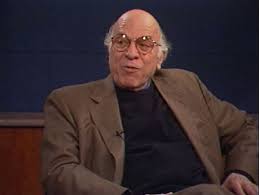This use of morally charged epithets makes the right philosophical position sound like a matter of being tougher than the other kids on the playground, or having a stiff upper lip.
A Perspectiva da Primeira Pessoa
Repositório de idéias relacionadas à minha pesquisa
quinta-feira, abril 19, 2012
Stern on resolute/irresolute readings of the Tractatus
segunda-feira, setembro 12, 2011
Man is a way of being a body
sexta-feira, janeiro 28, 2011
Adequate Words
"Just at present almost all university activities in Britain are described in the language of accountancy. So even an activity such as philosophy is described not in terms of hopes and insights, understanding and despair, which at least seem to capture much of it, but in terms of deliverability, production targets, output monitoring, measuring, auditing, appraisal, value-added point-of-service strategic resource allocations, and other horrors adapted, perhaps, for measuring the delivery of coal or the production of landfill, but grotesquely unfitted to describing attempts to understand the world."
Simon Blackburn em Truth: A Guide, p. 95
domingo, maio 16, 2010
Página no academia.edu
sábado, março 27, 2010
Russell vs. cético sobre as condições da implicação
Wittgenstein & Carroll

quarta-feira, março 10, 2010
Cavell sobre o que é a filosofia

terça-feira, março 09, 2010
Beta do resumo para o XIV Encontro da Anpof

Linguagem comum, critérios e ceticismo: notas sobre a filosofia de Stanley Cavell
A presente comunicação pretende investigar as relações entre três aspectos fundamentais da filosofia de Stanley Cavell: o interesse metodológico pela filosofia da linguagem comum representada nos escritos de J. L. Austin e de Ludwig Wittgenstein, a visão projetiva dos critérios linguísticos sistematizada em The Claim of Reason, e a tese da verdade do ceticismo que subjaz a muitos de seus escritos posteriores. O principal foco do interesse em Austin e em Wittgenstein, do modo como Cavell os interpreta, reside em seu reconhecimento de que a linguagem comum é simultaneamente a origem e o caminho para a cura do impulso metafísico—ou de sua contrapartida, o impulso cético—em filosofia. Daí resulta a visão do filósofo da linguagem comum como alguém que deve ser capaz tanto de dar voz às tentações filosóficas que a posse de critérios possibilita quanto de tentar superá-las, através de uma reflexão que visa a recuperar a consciência de certos aspectos de nossas práticas linguísticas que podem ter sido esquecidos, reprimidos ou sublimados como resultado do ato de filosofar. Parte da explicação para essas tentações reside na insatisfação (demasiado humana) com o fato de que nossos critérios não podem garantir (impessoalmente) o acordo, seja entre diferentes usuários da linguagem, seja da relação desta com o mundo. Dado que nossos critérios baseiam-se apenas nos interesses e nas necessidades humanas—as quais, embora fundamentadas em uma “história natural” comum, encontram-se, assim como essa história, em constante mutação—eles devem estar permanentemente abertos a revisão, e, nesse sentido, devem estar sempre sujeitosao tipo de repúdio favorecido pelo cético. Uma consequência dessa concepção dos critérios é a tese de que Wittgenstein jamais teria pretendido negar, por exemplo, a possibilidade de uma “linguagem privada”; em vez disso, seu objetivo teria sido mostrar que a privacidade é umapossibilidade humana permanente—portanto, que a superação da privacidade deve ser sempre uma conquista, algo pelo qual cada um de nós tem de assumir pessoalmente a responsabilidade. Isso implica que, pace grande parte dos wittgensteinianos, descrever e arrolar nossos critérios simplesmente não pode ser uma maneira de refutar o ceticismo; na verdade, o resultado mais provável dessa estratégia seria o reforço da atitude cética, dada a indicação da real fragilidade dos fundamentos do acordo linguístico. Mas isso não implica que o ceticismo deveria ser simplesmente aceito: o cético pode estar certo ao indicar que a existência do “mundo externo” ou de “outras mentes” não pode ser conhecida com inabalável certeza; entretanto, ele erra ao interpretar esse resultado como uma demonstração de que o mundo e as outras pessoas podem não ser reais. O que há de verdadeiro no ceticismo é a atestação de que, para seres finitos como nós, a realidade do mundo e dos demais sujeitos não podem ser funções de nosso conhecimento, mas dependem antes de nossa aceitação e de nossoreconhecimento—portanto, que os reais custos envolvidos no abandono cético do consentimento não são apenas epistêmicos e teóricos, mas sobretudo práticos ou existenciais.
quarta-feira, agosto 20, 2008
Cavell and the acknowledgment of human finitude
 The burden of Stanley Cavell's philosophy is the acknowledgment of human finitude. (Stephen Mulhall, The Cavell Reader, p. 1)
The burden of Stanley Cavell's philosophy is the acknowledgment of human finitude. (Stephen Mulhall, The Cavell Reader, p. 1)[...] what the skeptic understands as a process of disillusionment in the name of knowledge, Cavell interprets as an inability or refusal to acknowledge the fact that human knowledge – the knowledge available to finite creatures, subjective agents in an objective world – is necessarily conditioned. (Ibid, p. 9)
segunda-feira, maio 26, 2008
Wittgenstein and Dostoyevsky on Religious Belief
Religious belief could only be something like a passionate commitment to a system of reference, [...] a way of living [...]
Alyosha was more of a realist than anyone. Oh! no doubt, in the monastery he fully believed in miracles, but, to my thinking, miracles are never a stumbling-block to the realist. It is not miracles that dispose realists to belief. The genuine realist, if he is an unbeliever, will always find strength and ability to disbelieve in the miraculous, and if he is confronted with a miracle as an irrefutable fact he would rather disbelieve his own senses than admit the fact. Even if he admits it, he admits it as a fact of nature till then unrecognised by him. Faith does not, in the realist, spring from the miracle but the miracle from faith. If the realist once believes, then he is bound by his very realism to admit the miraculous also.